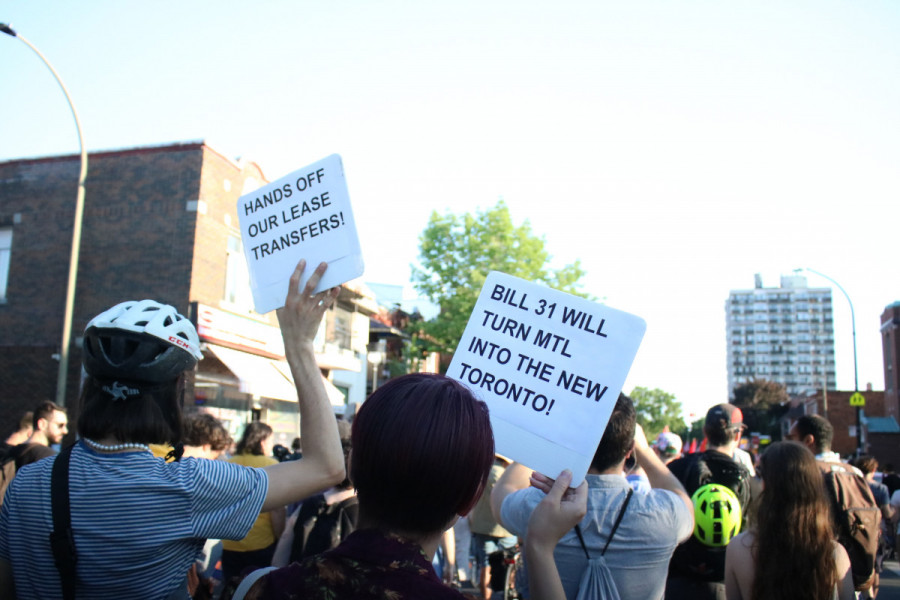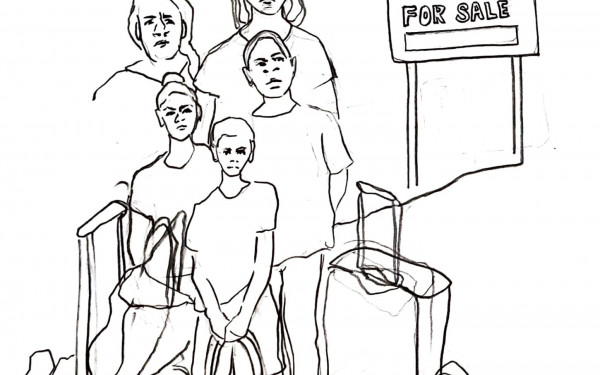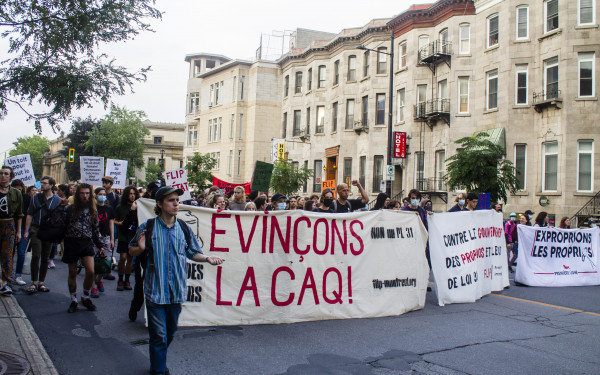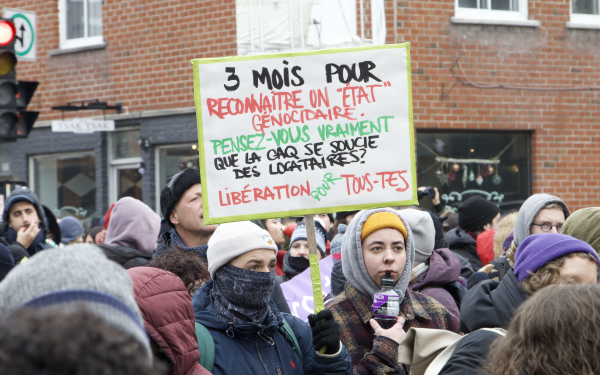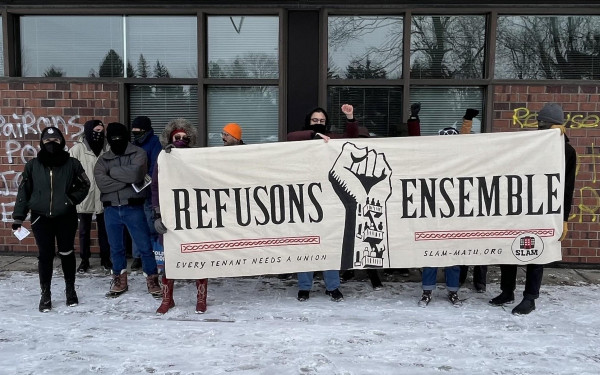Thousands Protest New Lease Transfer Bill
Protesters Demand Fair Treatment for Tenants
On Thursday, June 22, thousands of Montrealers gathered in front of the Parc Metro station, demanding fair rights for tenants, after Bill 31 was tabled in early June.
Bill 31 would take away the rights of tenants to transfer their lease without a valid reason, and it would possibly cause a more stressful outcome for the immigrants and working class.
Sohnia Karanad Ali, a member of the Comité d’action de Parc-Extension organization, a housing committee in defence of tenants’ rights, points out that Bill 31 opens a broader ground for the landlord because they can refuse a lease without any valid reason.
Assignment of leases allows tenants to avoid penalties for moving out before the lease expires. The possible outcome of Bill 31 would be increasing rents, which will turn into unfriendly situations for the working class.
According to Ali, the situation is getting worse and worse due to the increase in rent in the last few years, while the working-class neighbourhoods are still at the minimum wage.
According to statistics by Regroupement des Comités Logements et Associations de Tenants du Québec (RCLALQ), rent has consistently increased in the past two years.
“For the immigrants who are here for a long period of time, the current situation is increasing their housing insecurity, and the new arrivals are facing high rent,” she said.
Ali continued on by criticizing the government for their action against tenants.“All these governments, they are obliged. They are bound to respect the right of housing. But they are not willing.”
Nicolas Lemieux, a worker from the Comité des personnes assistées sociales de Pointe-Saint-Charles (CPAS) said Bill 31 has hit immigrant families heavily because many people in the group are already facing lots of discrimination just to find a lease.
According to RCLALQ, housing discrimination is likely reinforced in Montreal due to its shrinking rental market, one that has been especially affected by COVID-19. RCLALQ has seen numerous examples of discrimination related to ethnic origin, social status, marital status and age of children, gender, and age.
Lemieux thinks that Bill 31 is giving even more power to the landlords to discriminate.
“It's gonna transcribe less power and less rights and more discrimination for people living in poverty having to live.” Said Lemieux.
Lemieux thinks poverty hits the immigrants systematically, because of the discrimination and language barriers.
“They end up living off welfare and so just living in a layer of poverty that is higher now knowing that their tenants’ rights will be diminishing, and this is why there are a large number of them here tonight.”
Cloe St. Hilaire, a PhD student at the University of Waterloo who studies housing issues, thinks that Bill 31 reflects the priorities that are put on housing.
“The ministers right now are essentially very emphasized towards property and real estate. Instead of seeing housing as a true right.”
Hilaire has also pointed out the possible outcome of landlords having rights to refuse a lease transfer. “If the landlord does not write the current rent in the lease, then the future tenant will not know and then nothing prevents the landlord from hacking off the rent. Following the cancellation of the lease transfer,” she sad
It's really hard for people afterwards to ensure that affordability is kept because people don't have a true grant registry.
She is demanding to have real rent control to build and maintain more social housing, rent, registry, and a property registry.

